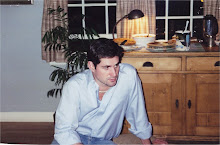
Religion suffered some major setbacks in the 18th and 19th centuries as Enlightenment thinkers challenged religious dogma by introducing the world to a new scientific method as a means to understand the workings of the universe. Religious "mysteries" were explained and dogma was questioned by scientists and intellectuals who introduced to the world the Enlightenment concepts of Rationalism, Relativism, and Individualism. The power and influence of the church was under siege by the rise of secularism, which is the belief that religion should hold no place in public life. In response to this, the church mounted a few religious revivals in the last two centuries to try to reclaim its position as the moral and spiritual leader of the world. The first of these revivals is known as the Great Awakening, which occurred between the years 1730 and 1760. This movement was lead by the Puritan minister Jonathan Edwards, whom we have studied in the previous marking period. His passionate and intense sermons attracted a tremendous following; his sermons were often terrifying pictures of hell and damnation, a hell that can only be avoided by the saving grace of accepting Jesus as the Christ, or Messiah, the Savior of Mankind. His most famous sermon was entitled "Sinners in the Hands of an Angry God"; the title itself suggests the terrifying repercussions of living a life without redemption. This revival settled down after 1760, only to be revived again between the years 1800 and 1830. This period is known as the Second Great Awakening. Once again, religious leaders achieved a large following by emphasizing a return to the roots of Christianity, focusing on the belief of Original Sin and seeking forgiveness from Jesus. It is the belief of Original Sin and this return to fundamental Christian beliefs that are the core of a new movement that began after 1840 known as Anti-Transcendentalism.


















